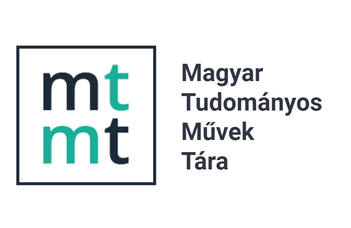The interference of fiscal regulations with those in the criminal field. The right to silence and the right not to self-incriminate of a legal person in Romania
DOI:
https://doi.org/10.46941/2023.e2.7Kulcsszavak:
fiscal procedure, criminal procedure, right to be heard, obligation to cooperate, right to silenceAbsztrakt
In our approach, some aspects must be clarifies from the beginning, regarding a prerogative of the financial (fiscal) authority, but also of the tax system, respectively the control function. The Tax Procedure Code regulates the procedures by which the tax bodies verify the fulfilment by the persons subject to the tax law of the legal obligations. These procedures are the followings i.e. tax inspection, unexpected control, verification of the personal tax situation by the central tax body, anti-fraud control, and documentary verification. Each procedure is governed by specific rules and objectives. Also, the issues of taxpayer’s right to present his point of view on the relevant facts and circumstances are going to be addressed, and of course, the taxpayer’s obligation to cooperate versus the right to silence and plea-agreement.
Hivatkozások
Anghel, T. (2020) Codul de procedură fiscală. Comentariu pe articole, Bucharest: Hamangiu Publishing House.
Boța, A.-F. (2002) Finanțele și societatea contemporană, vol. I Repere ale integrării: Finanțele publice. Bucharest: Paralela 45 Publishing House.
Cîrmaciu, D. (2010) Dreptul finanțelor publice. Oradea: Universitatea din Oradea Publishing House.
Cîrmaciu, D., Mihes, C., (2022) `Position of the Fiscal Authority in Criminal Proceedings, Plea Agreements at the Interface of the Criminal Tax Proceedings, Estimates in Tax Law, Self-Disclosure` in Farkas, Á., Dannecker, G., Jacsó, J. (eds.) – External, Internal and Criminal Investigations of Criminal Offences Affecting the Financial Interests of the European Union, Budapest: Wolters Kluwer Hungary, pp.258-270.
Costaș C. F. (2021) Drept financiar. 3rd edition, revised and ammended, Bucharest: Universul Juridic Publishing House.
Mihes, C. (2019) Despre martor în procesul penal. Dreptul la tăcere. Autoincriminarea. Asistența juridică’ in Crișan, E., Kádár H., (eds.) Probleme de drept apărute în legislația, doctrina și jurisprudența penală ulterior reformei legislative din 2014. Bucharest: C.H.Beck Publishing House, pp. 10-24.
Mirișan, V. (2019) Protection of the budget of the European Union in Romania under criminal law rules: theoretical and practical aspects’, in Dannecker, G., Farkas, Á., Jacsó, J. (eds.) Criminal Law Aspects of the Protection of the Financial Interests of the European Union with particular emphasis on the national legislation on tax fraud, corruption, money laundering and criminal compliance with reference to cybercrime, Budapest: Wolters Kluwer Hungary, pp. 178-187.
Mirișan V., Mirișan, L. V. (2019) The new anti-fraud policy in the field of the Value Added Tax in Romania and the legal framework in matter (regulatory)’, in Dannecker, G., Farkas, Á., Jacsó, J. (eds.) Criminal Law Aspects of the Protection of the Financial Interests of the European Union with particular emphasis on the national legislation on tax fraud, corruption, money laundering and criminal compliance with reference to cybercrime, Budapest: Wolters Kluwer Hungary, pp. 188-200.
Pătrăuș M. E., Popa, C. T. (2017) Tax evasion. Theoretical and practical conditions of application of art. 10 of law 241/2005, Annals of Faculty of Economics, University of Oradea, Faculty of Economics, 1(1), pp. p. 92-116.
Șaguna, D. D., Radu, D. I. (2018) Drept fiscal. Obligații fiscale. Declarații fiscale, 3rd edition, Bucharest: C. H. Beck Publishing House.
Direcția Generală Coordonare Inspecție Fiscală (no date) Ghid Pentru Inspecţia Fiscală [Online]. Available at: https://static.anaf.ro/static/10/Anaf/Informatii_R/inspectie_taxa/QW24_v2_final_ghid_1.pdf (Accessed: 5 November 2021).





